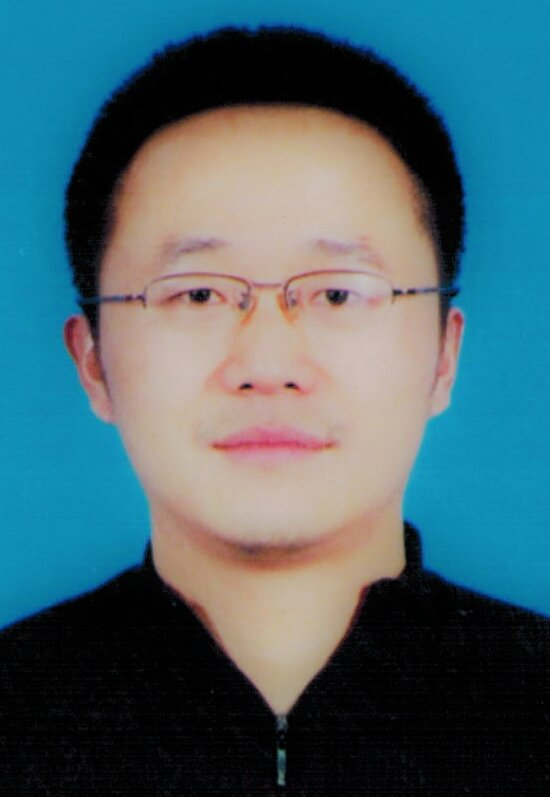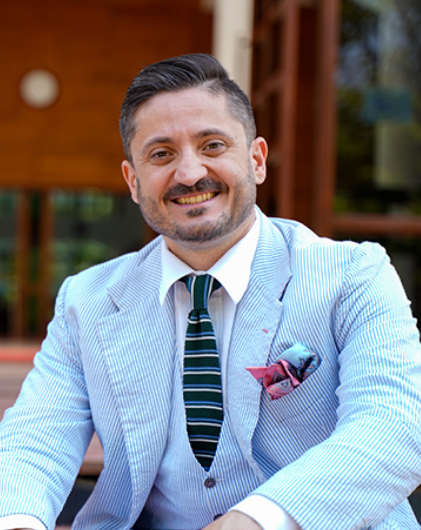
| Prof. Yu ZhonggenFaculty of Foreign Studies, Beijing Language and Culture University, ChinaResearch Area: Linguistics, Language Education, Educational Technology Introduction:Zhonggen Yu, Editor in Chief of Forum for Linguistic Studies,https://orcid.org/0000-0002-3873-980X, Professor (distinguished) and Ph.D. Supervisor in Department of English Studies, Faculty of Foreign Studies, Academy of International Language Services, National Base for Language Service Export, Beijing Language and Culture University, has already published over 180 academic papers in distinguished journals based on rich teaching and research experiences. His research interest includes Linguistics, Language Education, and Educational Technology. Speech title:Bibliometrically and systematically analyzing automated writing evaluation for English learning Abstract: Automated writing evaluation is highly discussed in artificial intelligence for English learning. It is necessary to explore the effect of automated writing evaluation on learning English as a second language. This study combined bibliometric analysis and systematic review to explore the use of automated writing evaluation for learning English as a second language. VOSviewer was used to identify the highly discussed topics, the top ten cited authors, organizations, countries, references, and sources in the studies on automated writing evaluation. Fifty-six peer-reviewed articles were selected according to the Preferred Reporting Items for Systematic Review and Meta-analysis Protocols. The analysis revealed that automated writing evaluation is helpful, but its effectiveness varies according to the types of feedback, and it cannot replace the role of human feedback yet. Teachers’ roles are significant in integrating automated writing evaluation into the classroom. Future research could focus on the specific ways to integrate automated writing evaluation into the classroom better. |
Prof. Holger Mathias BRIELBeijing Normal University-Hong Kong Baptist University United International College (UIC), ChinaResearch Area: Media Studies, Media Theory, Media Ethics, Oral History Research, Post-Digital Humanities Introduction: Professor Dr Holger BRIEL is Professor in Media and Communication Studies Programme. He holds a Ph.D. in Cultural Theory from the University of Massachusetts, Amherst, an M.A. in Comparative Literature from the University of Michigan, Ann Arbor and a B.A. in English and German from Eberhardt-Karls-Universität Tübingen, Germany. A portion of his graduate studies was also undertaken at the Université de Paris, Sorbonne. Previously, Dr Briel has taught at New York University, Shanghai Jiaotong University, Aristotle University Thessaloniki, the University of Innsbruck, the University of Surrey, Indiana State University and Xi'an Jiaotong Liverpool University. He has held numerous Visiting Professorships and lectured at Oxford University, UC Berkeley, CUNY, Ateneo de Manila, the National University of Malaysia, the National University of Singapore, Universität Rostock and many others. Besides many other engagements, he continues to supervise Ph.D. and Master students in countries around the globe. He has published copiously in media and cultural studies, philosophy, the social sciences, and international management studies and remains active a as journalist for several international newspapers. For many years, he has been the Editor-in-Chief of the influential IAFOR Journal of Cultural Studies and sits as an Editor and Joint Editor on many journal boards. Furthermore, he is the recipient of numerous prestigious research grants and fellowships, most recently the endowed National South Korean Senior Fellowship in Cultural Studies. In recognition of his expertise in global education, he has been elected to several national education supervisory bodies, including those of Greece, Hungary and Spain and membership in the EU Council for Higher Education. Title:The Future of Education and/in Art: Art, Development, and Education in China today Abstract: Futurology has been a growing field for many years and it seems that this trend is continuing. This lecture will also discuss artistic and pedagogical forecasting and the specific critical creativity associated with it. This approach is especially yielding when looking at the case of China. If for the longest time, futurism and Science Fiction has been thought of as a western genre, the following suggests that with new movements such as Asian Futurism and Sinofuturism, all evidence points to the innovative power of non-traditional SF. Already one of its forerunners, 1980s Cyberpunk, introduced a changing power differential between the east (Japan at the time) and the west, retiring older orientalist and colonial dreams of dominating Asia. While these are exciting developments, there are also drawbacks when it comes to cyberspace, as recent developments critical of online education have shown us. In my presentation I will suggest how both, Sinofuturism and lessons learned from online education can be used together to build on their common strengths and help each other in overcoming their respective weaknesses. |
|
| Prof. Beryl ExleySchool of Education and Professional Studies, Griffith University, AustraliaResearch Area: Literacies, Teaching reading and writing, Grammar, Critical literacies, Multimodal text, Teacher knowledge, Pedagogic rights Introduction: Professor Beryl Exley is an experienced classroom teacher who is now a teaching and research academic with the School of Education and Professional Studies at Griffith University, Australia. She has published over 150 sole-authored and co-authored research manuscripts, and has been awarded research funding from high esteem competitive grants including Australian Research Council Discovery and Australian Research Council Linkage grants. In 2008, she was recognised as a National Literacy and Numeracy Week Champion by the Commonwealth Government. She has supervised 14 higher degree research candidates to completion. Beryl is a former National President of the Australian Literacy Educators’ Association (ALEA) and in 2019 was awarded Life Membership for her services to the profession and professional associations. Title: SCAT Chats: Building Academic Language for Learning Abstract: This presentation overviews research on the development of students' academic language for learning. Children often struggle with moving from the social language of the family, to the academic language of schooling. A teaching initiative called SCAT Chats was implemented with young children and older children. Parents and other school personnel were involved in the delivery of the SCAT Chats, once a week for 16 minutes for 20 weeks. The 4 stage x 4 minute teaching model was proven to enhance learners' academic language. Moreover, the SCAT Chat initiative raised oral language consciousness with parents and other community members. |
Prof. Andrea L. BaldiniOutstanding Young Talent Full Professor, School of Arts of Nanjing University, Nanjing UniversityResearch Area: Aesthetics, Philosophy of Art, Ethics of Intellectual Property Introduction: Andrea Lorenzo Baldini is Outstanding Young Talent Full Professor of Aesthetics and Art Theory at the School of Arts of Nanjing University. He is also a founding Editor-in-Chief of the East Asian Journal of Philosophy (eajp.online). He holds two doctorates, one in Philosophy (Temple University, 2014) and one in Text Sciences (University of Siena, 2011). He has distinctly interdisciplinary research interests, which lie at the intersection of aesthetics, cultural studies, intellectual property law, and visual culture. He is especially interested in how creativity can add political and social value(s) to our everyday practises, with a focus on street art, graffiti, and public art. He has written three monographs on street art, includingA Philosophy Guide to Street Art and the Law, published by Brill. He published circa 50 essays published in edited collections and international journals such asPhilosophy Compass,Contemporary Aesthetics,Estetika: The European Journal of Aesthetics,The Journal of Aesthetics and Art Criticism, andThe Journal of Visual Culture. He serves on the Editorial Advisory Board of the series Bloomsbury History of Modern Aesthetics, as well as a Scientific Committee Member the Street Art and Urban Creativity Journal. He is a member of the Editorial Board of ESPES: The Slovak Journal of Aesthetics and Philosophical Inquiries. He was a Fulbright Fellow at Temple University, an International Exchange Postdoctoral Fellow at the Institute for Advanced Studies of Nanjing University, and a Visiting Scholar at Padua University, and CIEBA – School of Fine Arts at the University of Lisbon. He is Research fellow at INTI International University in Malaysia. He has won the Top Paper in Urban Communication of the National Communication Association (NCA) and the Nordev Prize from Temple University. Title: Urban Planning, Aesthetic Education, and the Need for Urban Creative Spontaneity: Learning from Aesthetic Imperfection Abstract: What is the best way to design a city? In general, the recent smart city trend adheres to the fundamental values that established modernism in the twentieth century. A well-designed city is an efficient city, in a nutshell. A beautiful city, as we might call it, is a location where desires and wishes are comprehended and fulfilled by brilliantly conceived urban structures and buildings. This point of view, which I call urban perfectionism, is challenged in this presentation. I prefer to advocate for what I call urban imperfectionism, or viewing the city as a developing space whose functions are constantly renegotiated from the ground up, beginning with the experience of its residents. I’ll use graffiti and street art as an example. We can learn - or perhaps re-learn - how to readapt the use of visible surfaces in improvised ways, bending urban planners' prescriptions in unexpected ways, from these art forms. The spontaneity taught by these art forms is an essential component of happy urban living. And we must educate ourselves and future generations to strive for cities that encourage a wide range of creative expression. |
|




